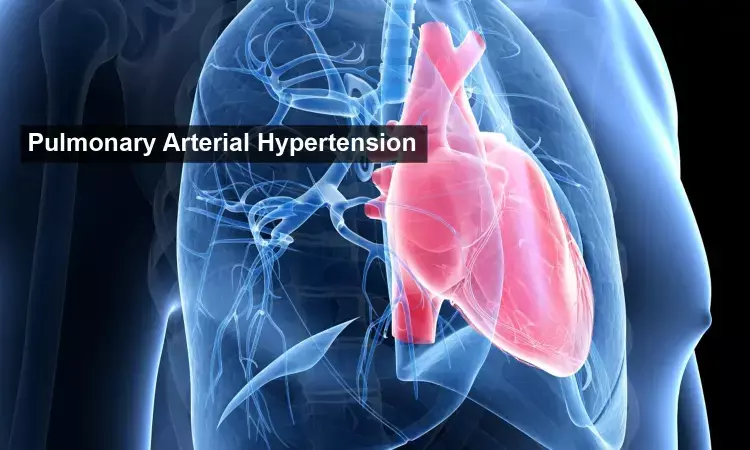- Home
- Medical news & Guidelines
- Anesthesiology
- Cardiology and CTVS
- Critical Care
- Dentistry
- Dermatology
- Diabetes and Endocrinology
- ENT
- Gastroenterology
- Medicine
- Nephrology
- Neurology
- Obstretics-Gynaecology
- Oncology
- Ophthalmology
- Orthopaedics
- Pediatrics-Neonatology
- Psychiatry
- Pulmonology
- Radiology
- Surgery
- Urology
- Laboratory Medicine
- Diet
- Nursing
- Paramedical
- Physiotherapy
- Health news
- Fact Check
- Bone Health Fact Check
- Brain Health Fact Check
- Cancer Related Fact Check
- Child Care Fact Check
- Dental and oral health fact check
- Diabetes and metabolic health fact check
- Diet and Nutrition Fact Check
- Eye and ENT Care Fact Check
- Fitness fact check
- Gut health fact check
- Heart health fact check
- Kidney health fact check
- Medical education fact check
- Men's health fact check
- Respiratory fact check
- Skin and hair care fact check
- Vaccine and Immunization fact check
- Women's health fact check
- AYUSH
- State News
- Andaman and Nicobar Islands
- Andhra Pradesh
- Arunachal Pradesh
- Assam
- Bihar
- Chandigarh
- Chattisgarh
- Dadra and Nagar Haveli
- Daman and Diu
- Delhi
- Goa
- Gujarat
- Haryana
- Himachal Pradesh
- Jammu & Kashmir
- Jharkhand
- Karnataka
- Kerala
- Ladakh
- Lakshadweep
- Madhya Pradesh
- Maharashtra
- Manipur
- Meghalaya
- Mizoram
- Nagaland
- Odisha
- Puducherry
- Punjab
- Rajasthan
- Sikkim
- Tamil Nadu
- Telangana
- Tripura
- Uttar Pradesh
- Uttrakhand
- West Bengal
- Medical Education
- Industry
Cardiac MRI a powerful prognostic tool in PAH patients, confirms review

UK: Cardiac MRI (CMR) or cardiac magnetic resonance imaging seems to be a powerful prognostic marker in pulmonary arterial hypertension (PAH) and also it can predict clinical worsening, a recent study has shown. The study, published in the journal JACC: Cardiovascular Imaging, provides a strong argument for the consideration of CMR as a clinical trial endpoint.
Pulmonary arterial hypertension is a type of high blood pressure (BP) affecting the arteries of the lungs and right side of the heart. In simpler words, it means a high BP in the lungs. PAH, if left untreated results in high mortality and morbidity associated with right ventricular (RV) dysfunction. A new PAH diagnosis is known to increase the death risk at 1 year to about fivefold. However, treatment advances in the last two decades have increased survival from 3 to 7 years although there is still a need for the development of new therapies.
Recently clinical studies of PAH therapies have shifted their approach for assessing exercise capacity and pulmonary hemodynamics. One such approach is using the time to clinical worsening. The events of clinical worsening include unsatisfactory long-term clinical response, mortality, disease progression, and hospitalization. However, owing to many reasons cardiac magnetic resonance imaging has recently been explored as a primary endpoint for the evaluation of PAH therapies.
CMR gold standard method of measuring RV volume, mass, and function and is an established prognostic and therapy response tool. However, there are limited data on the prediction of clinical worsening, an important composite endpoint used in PAH therapy trials.
The meta-analysis by Samer Alabed, University of Sheffield, Sheffield, United Kingdom, and colleagues evaluated the assessment of pulmonary arterial hypertension, with a focus on clinical worsening and mortality.
The researchers searched the online databases in May 2020. It included CMR studies assessing clinical worsening and the prognosis of patients with PAH. In total twenty-two studies with 1,938 participants were included in the meta-analysis. Pooled hazard ratios of univariate regression analyses for CMR measurements, for prediction of clinical worsening and mortality, were calculated.
Key findings of the study include:
- There were 18 clinical worsening events and 8 deaths per 100 patient-years.
- The pooled hazard ratios show that every 1% decrease in right ventricular (RV) ejection fraction is associated with a 4.9% increase in the risk of clinical worsening over 22 months of follow-up and a 2.2% increase in the risk of death over 54 months.
- For every 1 ml/m2 increase in RV end-systolic volume index or RV end-diastolic volume index, the risk of clinical worsening increases by 1.3% and 0.7%, respectively, and the risk of mortality increases by 0.9% and 1%.
- Every 1 ml/m2 decrease in left ventricular end-systolic volume index or left ventricular end-diastolic volume index increased the risk of death by 2.1% and 2.3%.
- Left ventricular parameters were not associated with clinical worsening.
"This review confirms CMR as a powerful prognostic marker in PAH patients. In addition to confirming previous observations that RV function and RV and left ventricular volumes predict mortality, RV function and volumes also predict clinical worsening. This study provides a strong rationale for considering CMR as a clinically relevant endpoint for trials of PAH therapies," concluded the authors.
The study, "Cardiac-MRI Predicts Clinical Worsening and Mortality in Pulmonary Arterial Hypertension," is published in the journal JACC: Cardiovascular Imaging.
DOI: https://imaging.onlinejacc.org/content/early/2020/09/18/j.jcmg.2020.08.013
Dr Kamal Kant Kohli-MBBS, DTCD- a chest specialist with more than 30 years of practice and a flair for writing clinical articles, Dr Kamal Kant Kohli joined Medical Dialogues as a Chief Editor of Medical News. Besides writing articles, as an editor, he proofreads and verifies all the medical content published on Medical Dialogues including those coming from journals, studies,medical conferences,guidelines etc. Email: drkohli@medicaldialogues.in. Contact no. 011-43720751


